
Wednesday December 16, 2015
By Adrian Humphreys
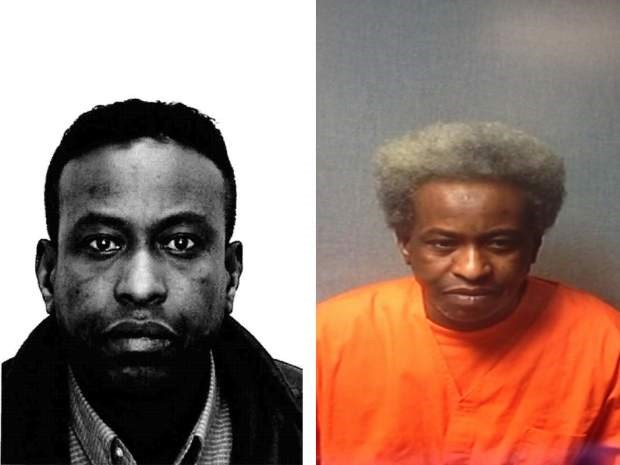
On the right, Abdirahmaan Warssama in an undated file photo prior to his 2010 incarceration. On the left, Warssama after nearly six years in prison.
After precisely five years and seven months in a high-security prison despite facing no charge or sentence, Abdirahmaan Warssama was finally told he could leave, Wednesday morning.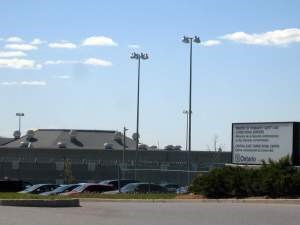
Soldiers investigate a car bomb in Mogadishu. Somalia has been described as a “failed state,” torn apart by civil war
Hearing the news from behind bars, sitting in his bright-orange prison jumpsuit, the 52-year-old Somali man cocked his head sideways and leaned in to listen, slowly nodding as if his suddenly brightening prospects were only slowly sinking in. A smile revealed a missing front tooth.“Thank you very much,” he said afterwards.
“Prison is too long.”
Following a court-ordered reassessment of his perplexing and unusual case — he is supposed to be deported to Somalia but Canada is unable to get him there because his home country is considered too dangerous — the Immigration and Refugee Board thought so too.
“Mr. Warssama has now been detained for five years and seven months and that, without a doubt, is a long period of time,” said IRB adjudicator Karina Henrique when giving her reasons for ordering his release.
Further, she said, there is no prospect his conundrum will be resolved any time soon.“The minister does not currently have any procedure in place that will allow them to remove Mr. Warssama without his voluntary compliance,” she said.
In fact, Henrique said, the way Canada Border Services Agency managed to deport six previous Somali nationals this year and four more scheduled for departure next month, is “problematic.”
CBSA has relied on asking — and pressuring — Somali citizens who are inadmissible to Canada to sign a declaration agreeing to cooperate with their return home, something Warssama refuses to do. His refusal has led to a logjam in his deportation.
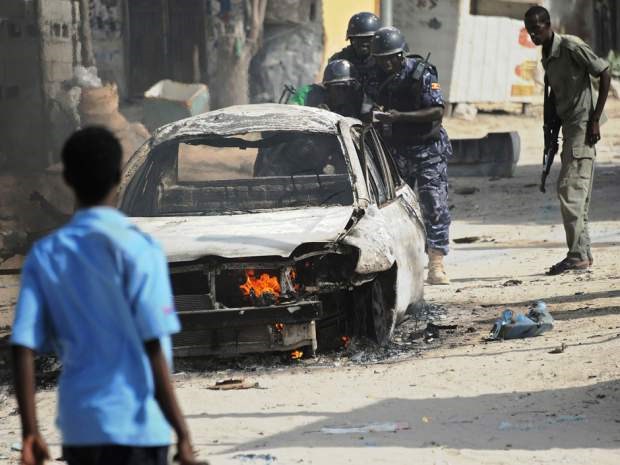
The CBSA doesn't now how to handle Warssama's case now that he's poised to be released from prison but can't be deported.
He says he was kidnapped and tortured by government forces in Somalia and members of his family were killed, some by violent government officials and others by violent jihadi militants. He has been diagnosed with post-traumatic stress disorder, the IRB heard.Henrique chastised CBSA for not doing enough to solve Warssama’s detention and deportation situation until last month’s stern intervention from the Federal Court of Canada.
“It is not until Justice (Sean) Harrington’s decision came out on Nov. 24 of this year that truly forced the minister to take another — harder — look at their procedure as it relates to Somali removals.
“Mr. Warssama has been determined to be a flight risk. Mr. Warssama is not a danger to the public,” said Henrique, meaning the government has good reason to suspect he might not willingly show up when ordered for a future flight to Somalia, but he is not likely to hurt members of the public if released from prison.
Even so, Henrique said his detention thus far has not been unlawful. Time, however, was up for CBSA to find a solution.
Henrique ordered his release on a cash and performance bond posted by his sister, Kiine, who is now a Canadian citizen, and with conditions to stay at her three-bedroom apartment and report in regularly with CBSA and show up when ordered by immigration authorities.
His sister told the IRB last week she would supervise Warssama. She has done it before.
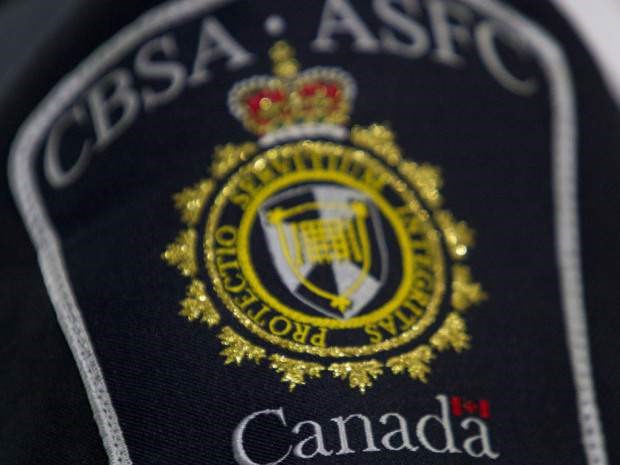
The CBSA doesn't now how to handle Warssama's case now that he's poised to be released from prison but can't be deported.
After one of his various past criminal convictions she bailed him out of jail. When she found him breaking a release condition by drinking alcohol, she called police. He reacted angrily, the IRB heard, pushing her and threatening her. That led to more criminal charges.But she told the IRB she does not fear her brother and will report him again if she ever finds he broke a release condition.
When she entered the IRB hearing room and saw her brother for the first time in years, she broke down and cried. His once black hair was now turning grey.
Henrique said the siblings retain a clear bond and believed she would do her duty as a surety for his release. But Henrique warned Warssama to listen to his sister and carefully comply with each of his release conditions or he would end up back in prison.
“Stay away from trouble,” Henrique told him.
Warssama said he understood.
This was Warssama’s 76th detention review by the IRB and after each previous hearing he had been ordered to remain in prison.
Warssama has been detained since May 16, 2010, when arrested by Toronto police on an immigration warrant.
It is equivalent to a prison term that might be handed out for manslaughter.
Subodh Bharati, Warssama’s lawyer, said Wednesday’s decision and last month’s court decision have bigger implications than just his client’s imprisonment.
“I hope this is the beginning of some semblance of legal oversight into the immigration detention system,” he said after the hearing.
“Warssama may be released but there are many who continue to suffer under lengthy incarceration. And the real fight is about addressing indefinite and arbitrary detention; about charter violations that occur without oversight and accountability; about the way we treat people with mental health issues, and finally about upholding human rights.”
Warssama’s home country, Somalia, is a dangerous and unstable place, considered one of the most dangerous places on Earth, torn apart by civil war, a failed government, militants and extremists of various allegiances.
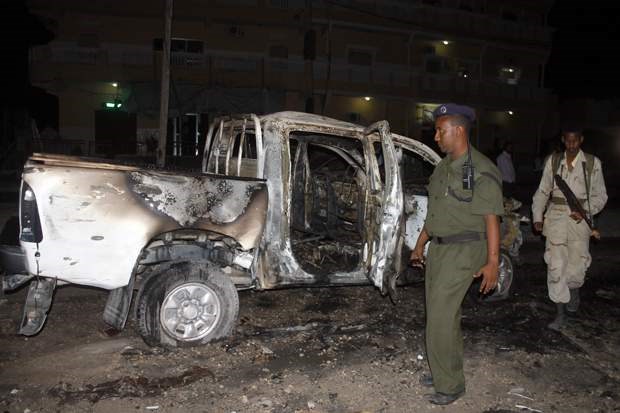
Security forces stand at the site of a car bomb attack against the Hotel Maka in Mogadishu Nov. 8, 2013.
Few countries send illegal immigrants or failed refugee claimants back to Somalia.Somalis are typically flown from Toronto to Turkey, then to Kenya and on to Somalia’s capital Mogadishu. CBSA guards accompany deportees on the first two legs of the trip but not the last because Mogadishu is too dangerous.
It is a no-go zone for Canadian officials, CBSA said.
African Express Airways, a short-haul airline based in Nairobi, is the only airline willing to fly a failed refugee claimant to Somalia unescorted, CBSA said, but it requires a signed consent form from the person agreeing to co-operate.
From his cell in Central East Correctional Centre in Lindsay, Ont., Warssama has consistently refused to sign the paperwork.
Internal CBSA documents suggest prison was used as punishment for him not signing or as coercion to elicit compliance.
“If the subject does not want to collaborate to obtain a travel document for his removal… well maybe he shall remain be (sic) detention a bit longer before he is ready to sign,” wrote Eric Gagnon, Canada Border Services Agency liaison officer at Canada’s embassy in Nairobi, Kenya, in an internal email in 2011 and obtained under the Access to Information and Privacy Act.
(The ellipses are part of the writing style of Gagnon and do not represent words deleted from his email.)
“Also very important for Canadian media attention when we deport to Mogadishu,” the email continued.
For the first few years of Warssama’ incarceration, CBSA was insisting he sign that he is voluntarily returning to Somalia, a notion that Warssama found offensive and ridiculous.
“No, I am not going to sign anything,” he told the IRB last month at his monthly detention review.
“That is why I am here for a long time, I cannot go back to Somalia, I will be killed or tortured… 25 years ago I fled from Somalia, I run from Somalia.
“My mother gets killed, my sister gets killed, my father gets killed. I do not want to go back,” he said. “I am not safe there.”
In his various hearing he said he fears being conscripted by notorious terrorist groups al-Qaida or Al-Shabab if he returned to Somalia or be killed himself.
In a sworn affidavit submitted to the IRB, Warssama tells a compelling story of despair before fleeing Somalia.
He says he is one of nine children. His father died after being kidnapped by government forces in 1987.
“My brother Ali and I were also kidnapped. The reason for our kidnapping was that the government believed we were supporters of the Somalian National Movement,” his affidavit says.
“I was transferred to Godka prison in Mogadishu where I was subjected to numerous beatings, interrogations and punishment amounting to torture. This included being kept in solitary confinement in a cell which was too small to stand up in, fed little to no food, and being taken to the ocean, placed in an empty rice sack, and submerged until nearly drowned.
“On one of the occasions that I was tortured I lost consciousness. When I regained consciousness I was in a state hospital in Mogadishu and was informed by one of the guards that I had been in a coma for approximately two months.
“After six months, enough money had been raised to bribe the guard and I was able to escape the hospital,” he says. He fled to Kenya, then to India and to Montreal, where he made a refugee claim.
“After these kidnappings most of my siblings fled Somalia and made refugee claims in various countries.
“My mother was too old and was unable to leave Somalia and so my sister Farhaye stayed behind to take care of her. I have been informed that they were both killed by Al Shabab militants sometime in 2012. Thus my last link to Somalia is gone."
“On one of the occasions that I was tortured I lost consciousness. When I regained consciousness I was in a state hospital in Mogadishu and was informed by one of the guards that I had been in a coma for approximately two months.
“After six months, enough money had been raised to bribe the guard and I was able to escape the hospital,” he says. He fled to Kenya, then to India and to Montreal, where he made a refugee claim.
“After these kidnappings most of my siblings fled Somalia and made refugee claims in various countries.
“My mother was too old and was unable to leave Somalia and so my sister Farhaye stayed behind to take care of her. I have been informed that they were both killed by Al Shabab militants sometime in 2012. Thus my last link to Somalia is gone.”
His refugee claim was denied. He was, however, later diagnosed wit post traumatic stress disorder and medical opinions supporting his claims of torture. He was allowed to remain in Canada on humanitarian and compassionate grounds but never obtained permanent status or citizenship.
In 2005 and 2006, he was convicted of threatening death, assault, criminal harassment, obstructing a peace officer and failing to appear as ordered by a court.
As a non-Canadian convicted of crimes, he was deemed inadmissible to Canada but CBSA has been unable to deport him.
Lawyers for other Somalis facing deportation from Canada have been watching this case closely.
CBSA representatives arguing for Warssama’s continued detention declined to comment on the decision after the hearing.